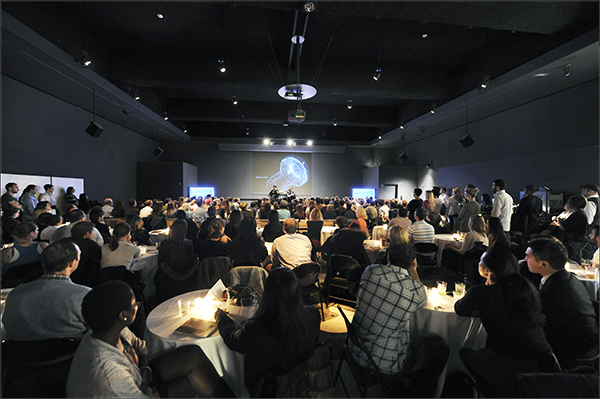Preview: After-Hours SciCafe Talk on Co-Evolution of Plants and Humans at the Natural History Museum
A leading biological anthropologist will discuss how plants are affecting human biology during December’s SciCafe Talk, a program held every first Wednesday of the month in AMNH’s Hall of the Universe.
Biologist and anthropologist Fatimah Jackson was researching in Liberia, West Africa when she noticed that the locals who had distinctive sickle cell patterns also had unique dietary patterns. Malaria was endemic in the area, but cassava—an important tropical root crop—seemed to be influencing the frequencies of the sickle cell gene and the severity of malaria in certain Liberian groups of the disease in humans. This realization spurred Jackson’s interest in studying the co-evolution between plants and humans, researching the chemical compounds of plants and understanding their effects on human biology.
“We’re all addicted to particular plant products because” we have intimate relationships with them, says Jackson, a professor of anthropology at the University of North Carolina at Chapel Hill and professor of biology at Howard University. “Some people who don’t have that cup of coffee in the morning…without that caffeine, they are just totally disoriented,” she continues. “Human social structure is very much organized around particular foods, [and] the foods we eat can modify our own biology and behavior.”
The SciCafe Talk at the American Museum of Natural History on Wednesday, Dec. 4 will explore how plants domesticated humans. Jackson will discuss the importance of understanding the chemical make-up of plants and how they affect human biology and behavior.
“Plants have domesticated us,” Jackson says. “I think that understanding the naturally occurring compounds in these plants have been absolutely crucial in human survival and human evolution.”
On GMOs
Ultimately, the continued evolution of harmful species is forcing society to remember the relationship between plants and humans, which also brings into question genetically modified organisms in the foods we eat on a daily basis and whether they’re safe for consumption.
“There’s no free lunch in evolution,” Jackson says, suggesting that altering the genes of plants has to have an effect on some portion of the human population because of the degree of human biological variability. “What is being modified in these common plants is in fact their phytochemical contents. I don’t think we have done adequate studies… in terms of human response to these GMOs.”
Learn more from Fatimah Jackson about the co-evolution of plants and humans with Fatimah Jackson on Wednesday, Dec. 4 at the SciCafe conversation at the Hall of the Universe in the American Museum of Natural History.
Enjoyed this article?
Get more previews of top events and be the first to know about new lectures by joining the Thoughtlectual community at no cost. Click here to join.



 Discover More
Discover More